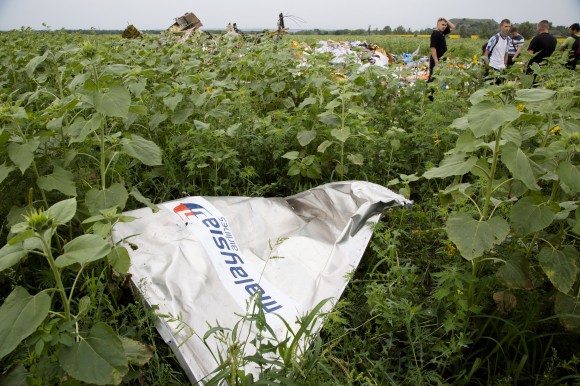An insurer’s war and financial services exclusions relieve it of having to provide coverage for an insured being sued for allegedly aiding international terrorists responsible for the crash of Malaysia Airlines Flight 17 in eastern Ukraine in 2014.
The U.S. District Court for the Southern District of New York has granted Hartford Fire Insurance Co. a declaratory judgment that it has no duty to defend or indemnify Western Union, which is being sued by the family of one of the victims alleging that Western Union provided “financial support” to the Donetsk People’s Republic (DPR) by facilitating money transfers.
The plane was shot down by the Donetsk People’s Republic, a Russian-backed separatist group in eastern Ukraine. The attack killed 298 passengers and crew members.
In the underlying lawsuit against Western Union, the family of victim Quinn Schansman, an American college student, asserts claims under the federal Antiterrorism Act. According to the family’s lawsuit, Western Union intentionally and with knowledge of its terrorist activities provided material support and financing to the DPR in the form of money transfer services to the DPR, which the DPR relied upon to buy the weapons and equipment needed for its terrorist activities, including the July 2014 attack on MH17.
The family alleges that Western Union “knew, or exhibited deliberate indifference” to the fact, that they provided material support to the DPR. The suit seeks unspecified damages.
Hartford issued a commercial general liability policy to Western Union for the October 1, 2013 to October 1, 2014 policy period, which had limits of $1 million each occurrence and $3 million aggregate.
Although Hartford Fire initially invoked only the war exclusion in denying Western Union’s request for coverage; in later pleadings it added the financial service exclusion as a reason.
Hartford Fire argued that the lawsuit fell within the scope of a war exclusion in the commercial general liability that says the policy does not apply for bodily injury or property damages “caused, arising, directly or indirectly, out of . . . war, . . . warlike action by a military force, . . . or insurrection, rebellion, revolution, [or] usurped power.”
Citing facts in the family’s complaint based on extensive news coverage and government information, the federal court found there was no need to decide whether the Schansman case falls within the scope of the exclusion for war and warlike action because it falls squarely within the exclusion for insurrection.
“In short, as alleged, the DPR was in the midst of a ‘violent uprising’ to “overthrow the constituted government’ — in other words, an insurrection — in eastern Ukraine when it shot down MH17,” U.S. District Judge Jesse M Furman wrote in the opinion.
In any event, Judge Furman added, even if the war exclusion did not defeat Western Union’s coverage claim, the policy’s financial services exclusion would. This exclusion provides that the policy “does not apply to ‘bodily injury’ . . . resulting from the rendering of or the failure to render financial services by any insured to others.”
The court dismissed the notion that its interpretation of the financial services exclusion would “impermissibly swallow up all coverage afforded to Western Union” by noting that it would not, for example, exclude coverage for a patent infringement claim or a slip-and-fall lawsuit.
Photo: In this Friday, July 18, 2014, file photo, a piece of a plane with the sign “Malaysia Airlines” lies in the grass as a group of Ukrainian coal miners search the site of a crashed Malaysian passenger plane near the village of Rozsypne, Ukraine. AP Photo/Dmitry Lovetsky, File)
Was this article valuable?
Here are more articles you may enjoy.



 Judge Tosses Buffalo Wild Wings Lawsuit That Has ‘No Meat on Its Bones’
Judge Tosses Buffalo Wild Wings Lawsuit That Has ‘No Meat on Its Bones’  Munich Re Unit to Cut 1,000 Positions as AI Takes Over Jobs
Munich Re Unit to Cut 1,000 Positions as AI Takes Over Jobs  CFC Owners Said to Tap Banks for Sale, IPO of £5 Billion Insurer
CFC Owners Said to Tap Banks for Sale, IPO of £5 Billion Insurer  AIG’s Zaffino: Outcomes From AI Use Went From ‘Aspirational’ to ‘Beyond Expectations’
AIG’s Zaffino: Outcomes From AI Use Went From ‘Aspirational’ to ‘Beyond Expectations’ 

